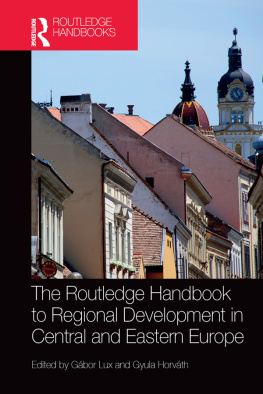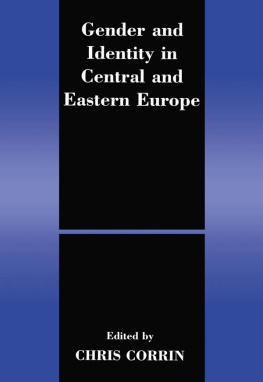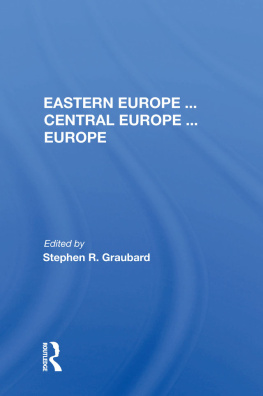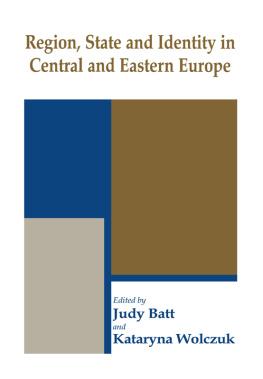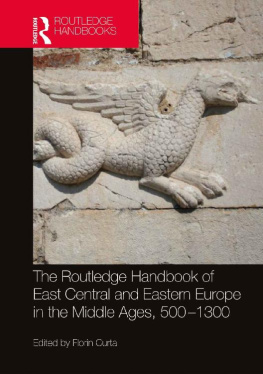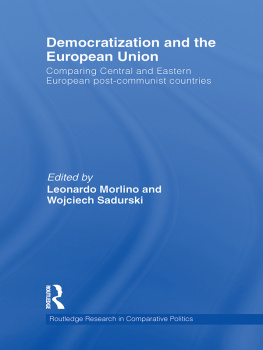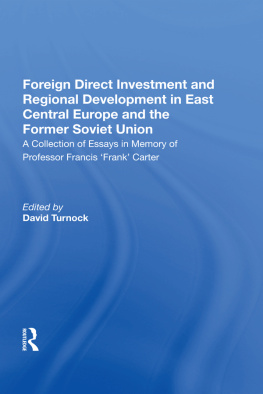The Routledge Handbook to Regional Development in Central and Eastern Europe
Twenty-five years into transformation, Central and Eastern European regions have undergone substantial socio-economic restructuring, integrating into European and global networks and producing new patterns of regional differentiation and development. Yet post-socialist modernisation has not been without its contradictions, manifesting in increasing social and territorial inequalities. Recent studies also suggest there are apparent limits to post-socialist growth models, accompanying a new set of challenges within an increasingly uncertain world.
Aiming to deliver a new synthesis of regional development issues at the crossroads between post-socialism and post-transition, this book identifes the main driving forces of spatial restructuring in Central and Eastern Europe, and charts the different regional development paths which take shape against the backdrop of post-crisis Europe. A comparative approach is used to highlight common development challenges and the underlying patterns of socio-economic differentiation alike. The issues investigated within the Handbook extend to a discussion of the varied economic consequences of transition, the social structures and institutional systems which underpin development processes, and the broadly understood sustainability of Central and Eastern Europes current development model.
This book will be of interest to academics and policymakers working in the felds of regional studies, economic geography, development studies and policy.
Gbor Lux is Senior Research Fellow at the CERS Institute for Regional Studies, the Hungarian Academy of Sciences, Pcs, Hungary.
Gyula Horvth was Research Advisor and former Director-General of the CERS Institute for Regional Studies, the Hungarian Academy of Sciences, Pcs, Hungary.
The Routledge Handbook to Regional Development in Central and Eastern Europe
Edited by Gbor Lux and Gyula Horvth
First published 2018
by Routledge
2 Park Square, Milton Park, Abingdon, Oxon OX14 4RN
and by Routledge
711 Third Avenue, New York, NY 10017
Routledge is an imprint of the Taylor & Francis Group, an informa business
2018 selection and editorial matter, Gbor Lux and Gyula Horvth; individual chapters, the contributors
The right of Gbor Lux and Gyula Horvth to be identified as the authors of the editorial material, and of the authors for their individual chapters, has been asserted in accordance with sections 77 and 78 of the Copyright, Designs and Patents Act 1988.
All rights reserved. No part of this book may be reprinted or reproduced or utilised in any form or by any electronic, mechanical, or other means, now known or hereafter invented, including photocopying and recording, or in any information storage or retrieval system, without permission in writing from the publishers.
Trademark notice: Product or corporate names may be trademarks or registered trademarks, and are used only for identification and explanation without intent to infringe.
British Library Cataloguing-in-Publication Data
A catalogue record for this book is available from the British Library
Library of Congress Cataloging-in-Publication Data
A catalog record for this book has been requested
ISBN: 978-1-4724-8571-7 (hbk)
ISBN: 978-1-315-58613-7 (ebk)
Typeset in Bembo
by Keystroke, Neville Lodge, Tettenhall, Wolverhampton
Contents
Gbor Lux
PART I
Economic transformation processes before and beyond the crisis
Gbor Lux
Gbor Lux
Zoltn Gl and Sndor Zsolt Kovcs
Pter Pla
Balzs Pger
Mrton Czirfusz
PART II
Social structures and governance
Zoltn Hajd, Rka Horeczki and Szilrd Rcz
Ilona Pln Kovcs
Lszl Farag and Ceclia Mezei
James Wesley Scott
Nra Baranyai
PART III
Challenges in sustainable development
Jan Suchek and Mariola Pytlikov
Zoltn Gl and Balzs Pger
Adam Drobniak, Adam Polko and Jan Suchek
Ferenc Erdsi
Andrea Suvk
Gyula Horvth
Gbor Lux and Lszl Farag
Gbor Lux (co-editor) is Senior Research Fellow at the CERS Institute for Regional Studies of the Hungarian Academy of Sciences. He graduated in 2004 as an economist from the University of Pcs, Faculty of Business and Economics, and earned his PhD in 2009 at the Doctoral School for Regional Policy and Economics. His main areas of research are industrial restructuring and industrial competitiveness in Central and Eastern Europe, industrial policy, urban economic governance and evolutionary economic geography. He is the author, co-author or editor of over 60 publications in Hungarian, English and Russian. He is a recipient of the Hungarian Academy of Sciences Academy Youth Award (2011) and the Jnos Bolyai Research Fellowship (20142017). He is a member of the Regional Studies Association, the European Regional Science Association, the Hungarian Regional Science Association and former member of AESOP Young Academics.
Gyula Horvth (co-editor) was Professor in Regional Economics and Policy at the University of Pcs and Research Advisor of the CERS Institute for Regional Studies of the Hungarian Academy of Sciences. From 1997 until 2012, he was Director-General of the Centre for Regional Studies of the Hungarian Academy of Sciences. From 2002 until 2011 he served as president of the Hungarian Regional Science Association, and from 2011 until 2015 as president of the Committee of Regional Science of the Hungarian Academy of Sciences. He was a member of the Academia Europaea (London), and member of the Presidency of the International Academy of Regional Development and Cooperation (Moscow). His research interests included European regional policy, restructuring and regional transformation in Eastern and Central Europe, and the regional development of science and higher education. He undertook extensive advisory and consultancy work within Hungary and Europe. He was visiting professor in Romania, Italy, Ireland, Russia and Denmark. He was author, editor and co-editor of 30 books and over 300 papers in Hungarian and in foreign languages. His latest book entitled Spaces and places in Central and Eastern Europe: historical trends and perspectives was published by Routledge in 2015. He passed away on 23 September 2015.
Nra Baranyai is Research Fellow at the CERS Institute for Regional Studies of the Hungarian Academy of Sciences. She obtained her PhD in political sciences in 2013 at the University of Pcs. Her professional interest is regionalism and ethno-regionalism in Central and Eastern Europe.
Mrton Czirfusz is Research Fellow at the CERS Institute for Regional Studies of the Hungarian Academy of Sciences, and Senior Lecturer at Etvs Lornd University. He is also a member of two Budapest-based independent groups, the Helyzet Working Group for Public Sociology and the Collective for Critical Urban Research. He graduated as a geographer in 2007 and holds a PhD in Geography (2012) from the Etvs Lornd University. His main research fields are transformation of the Hungarian space-economy after 1990, labour geographies, and critical urban studies, primarily in the Budapest context. He has authored, co-authored or edited more than 40 publications in Hungarian, English and German. He is recipient of the Hungarian Academy of Sciences Academy Youth Award (2016). He serves as managing editor of


